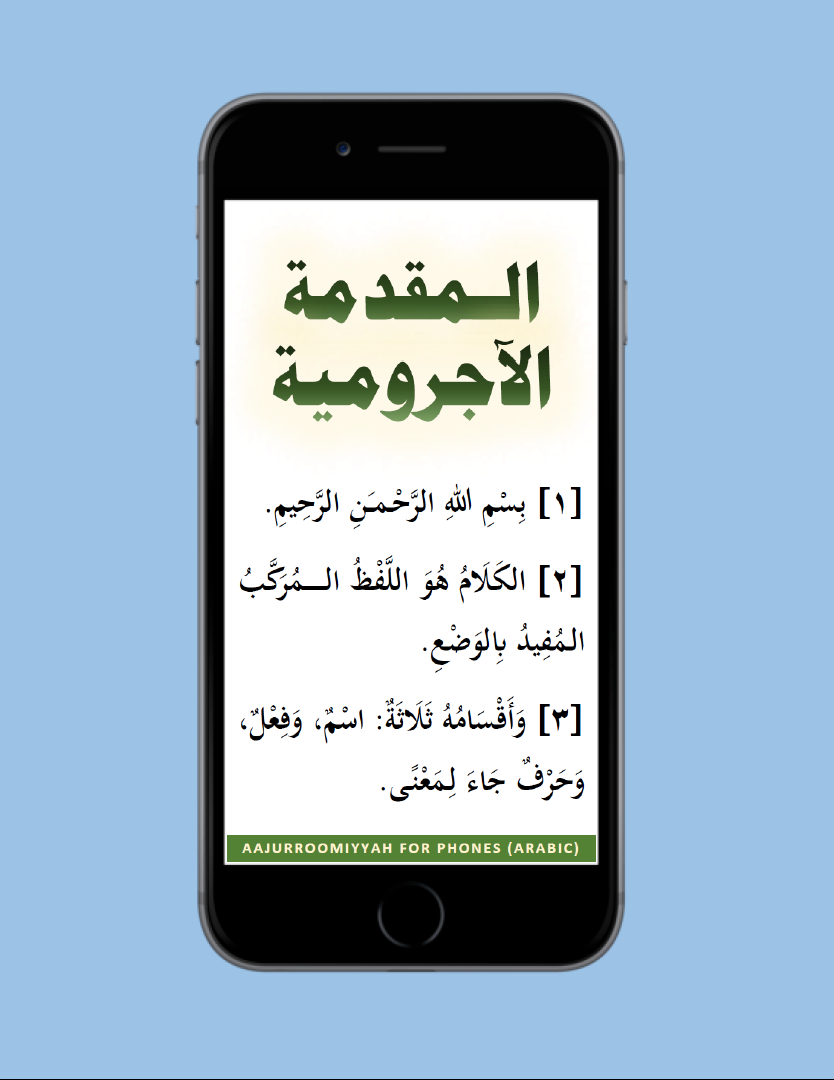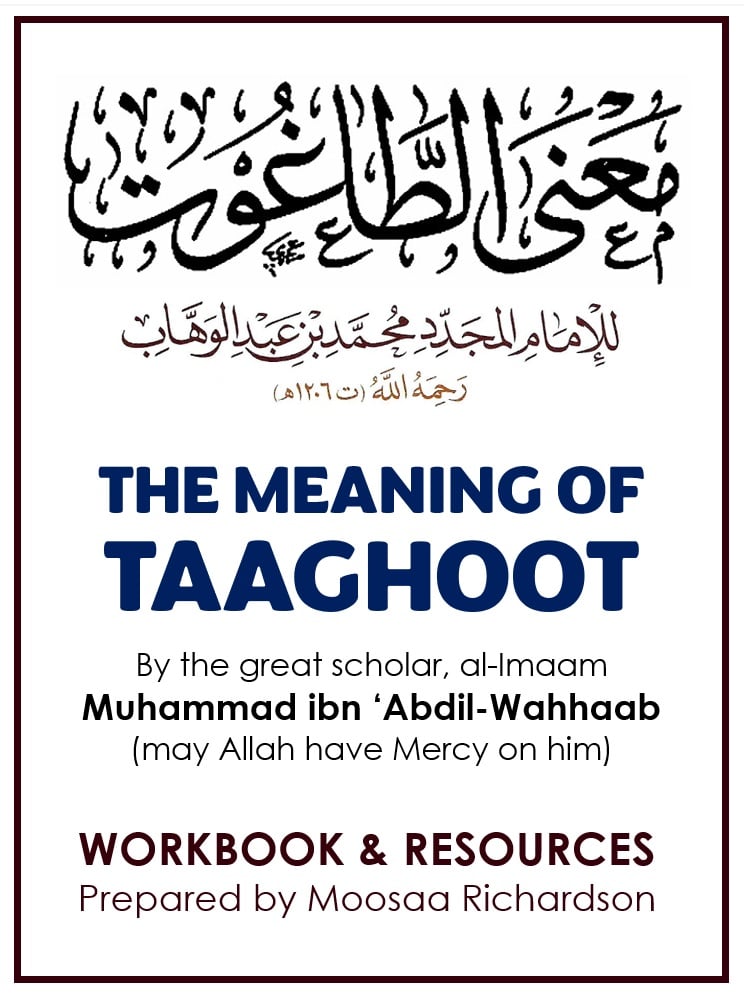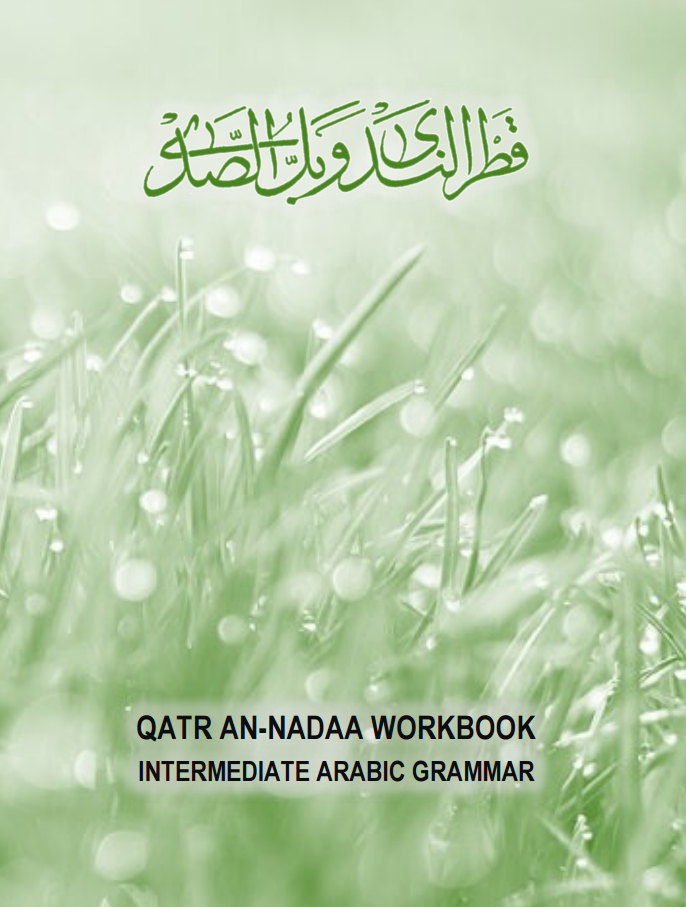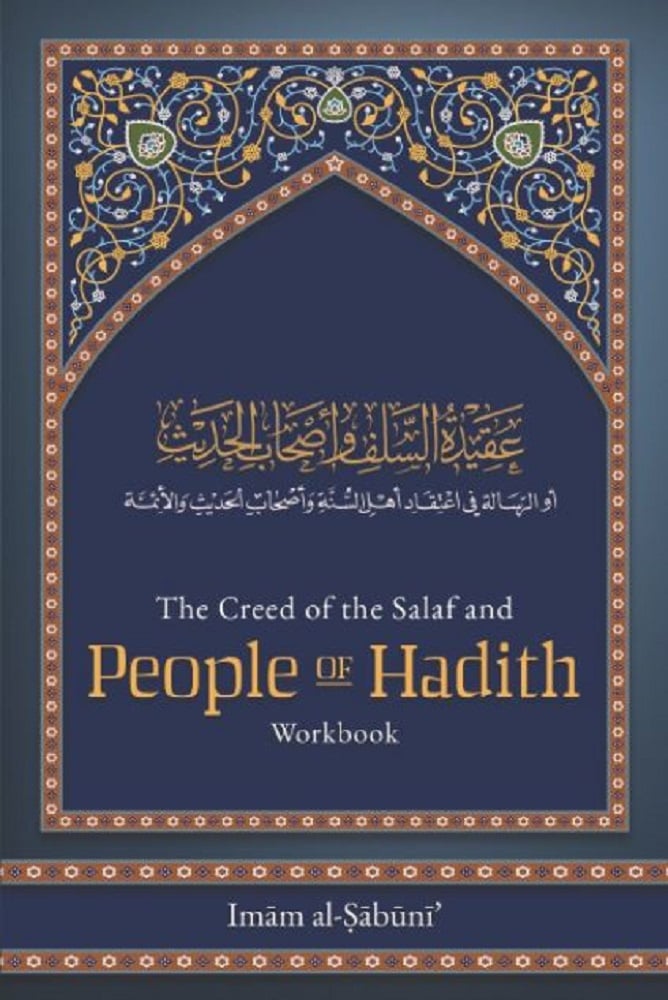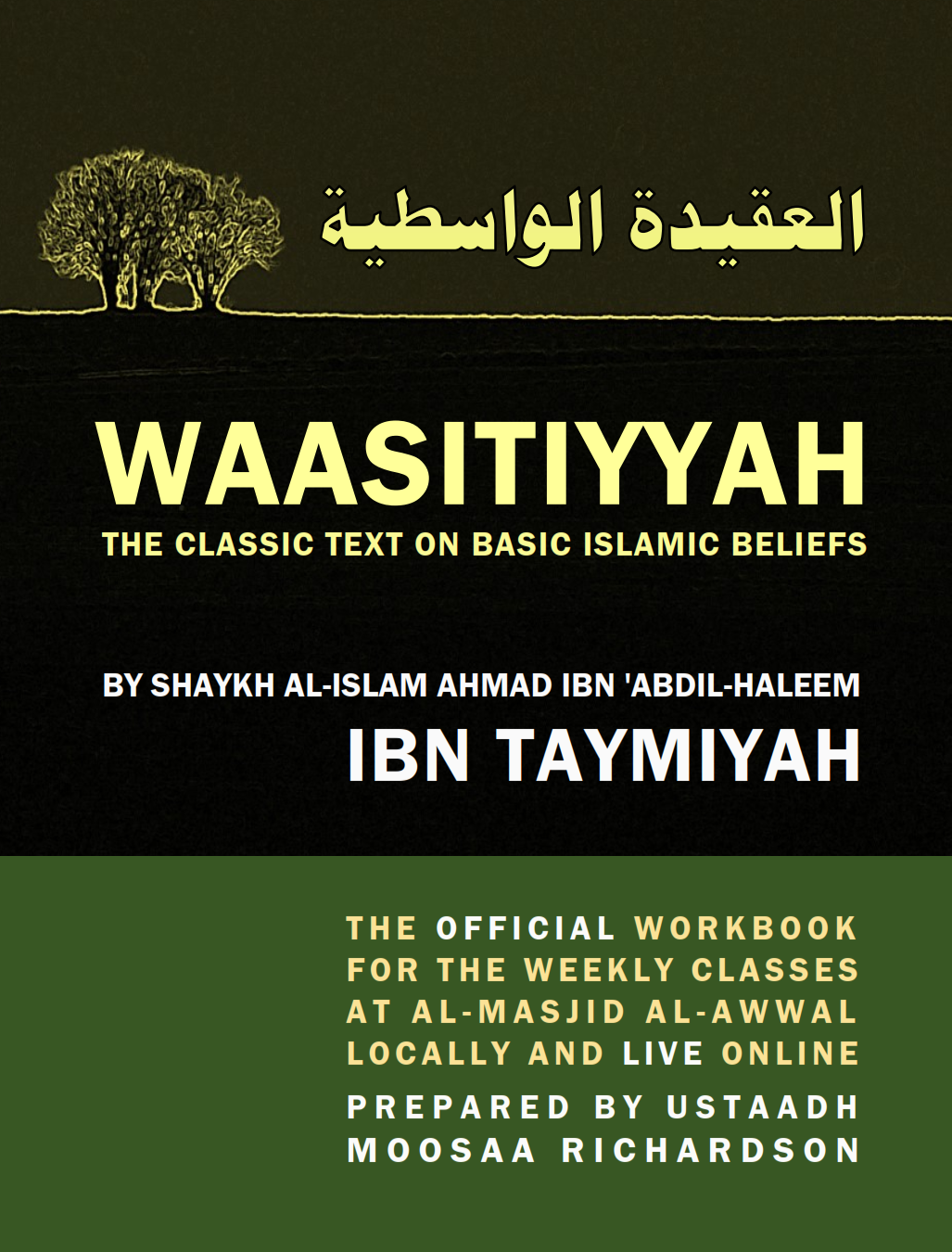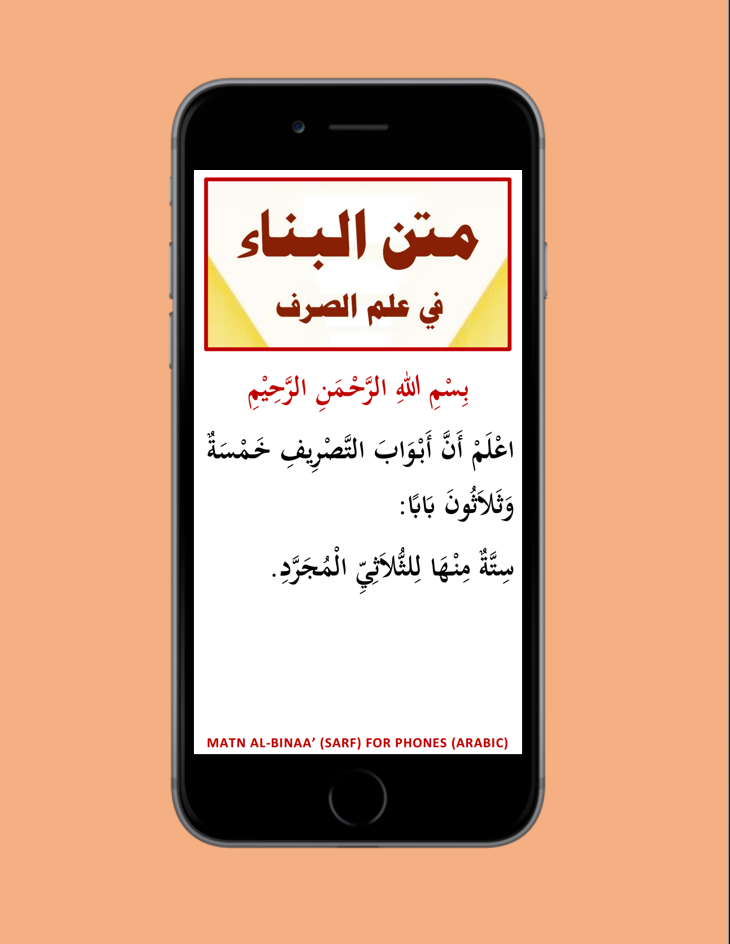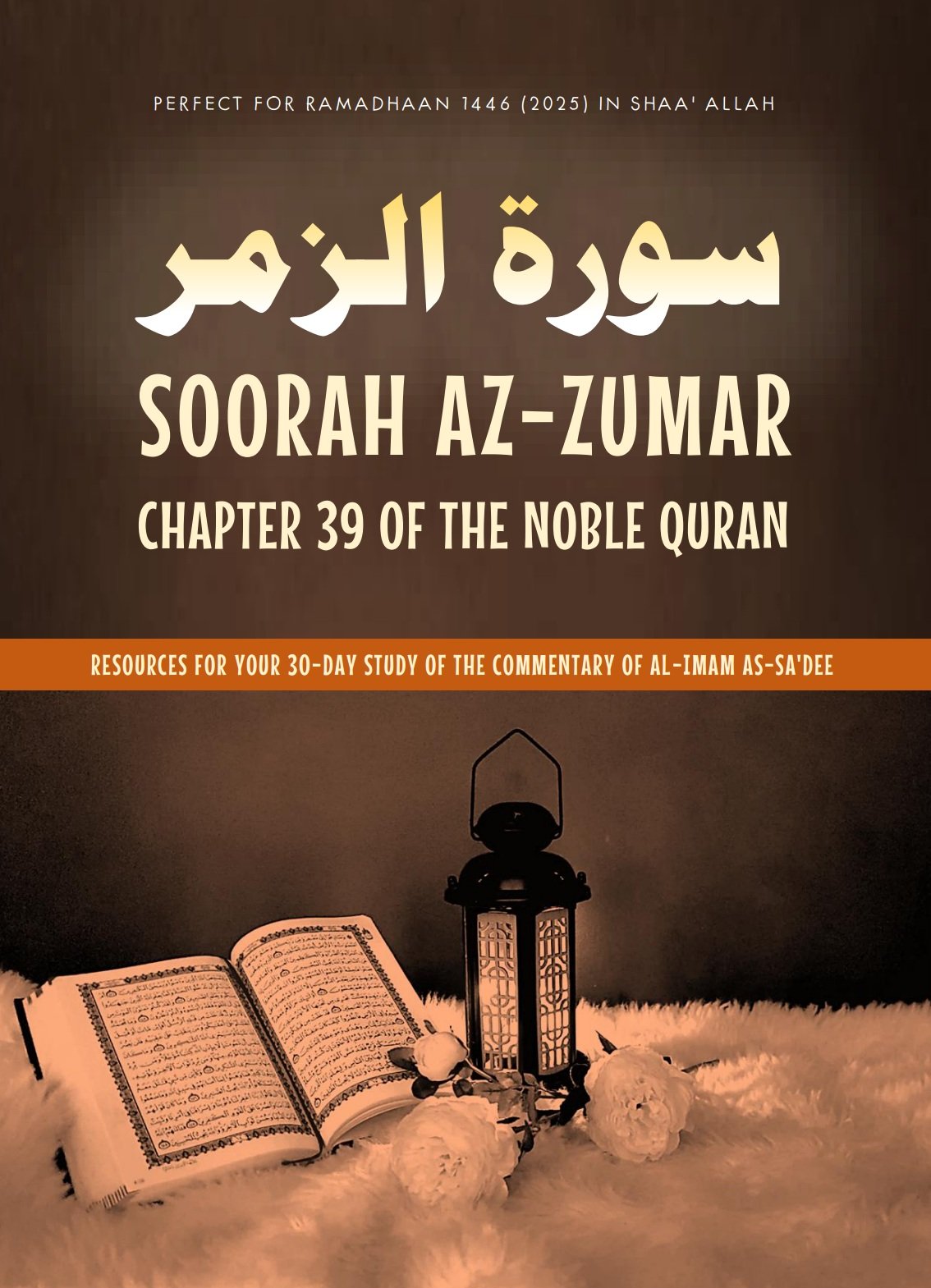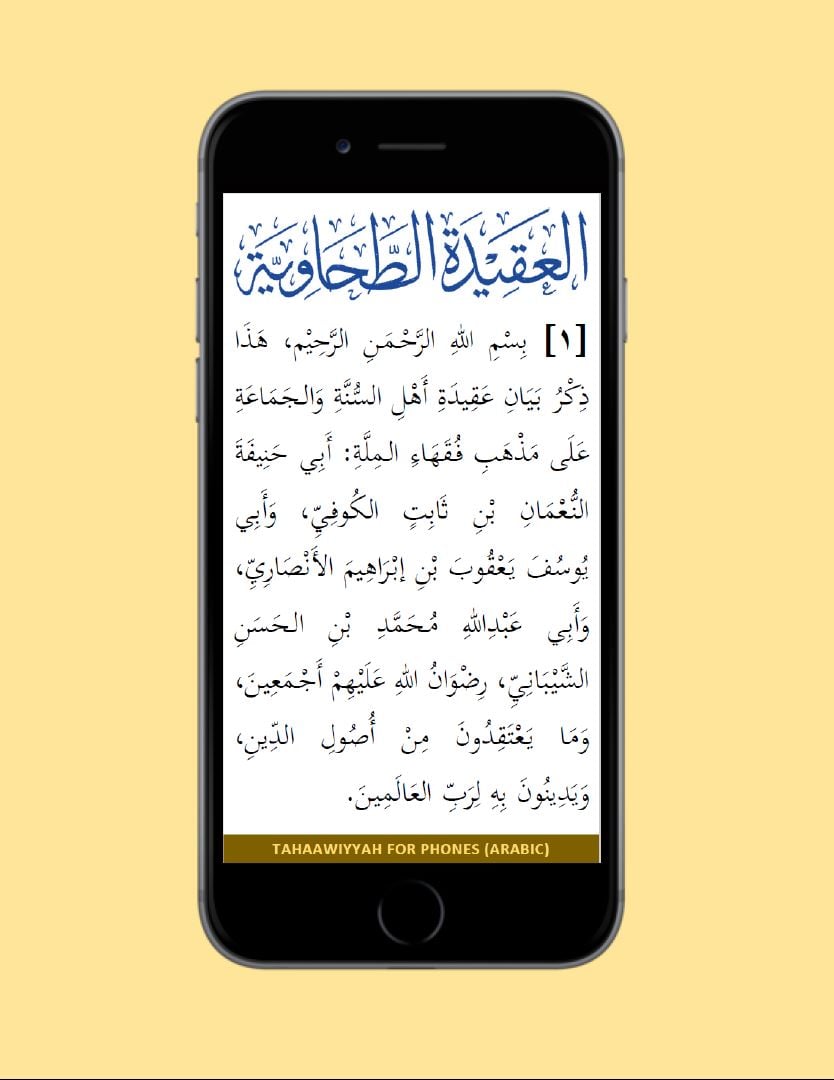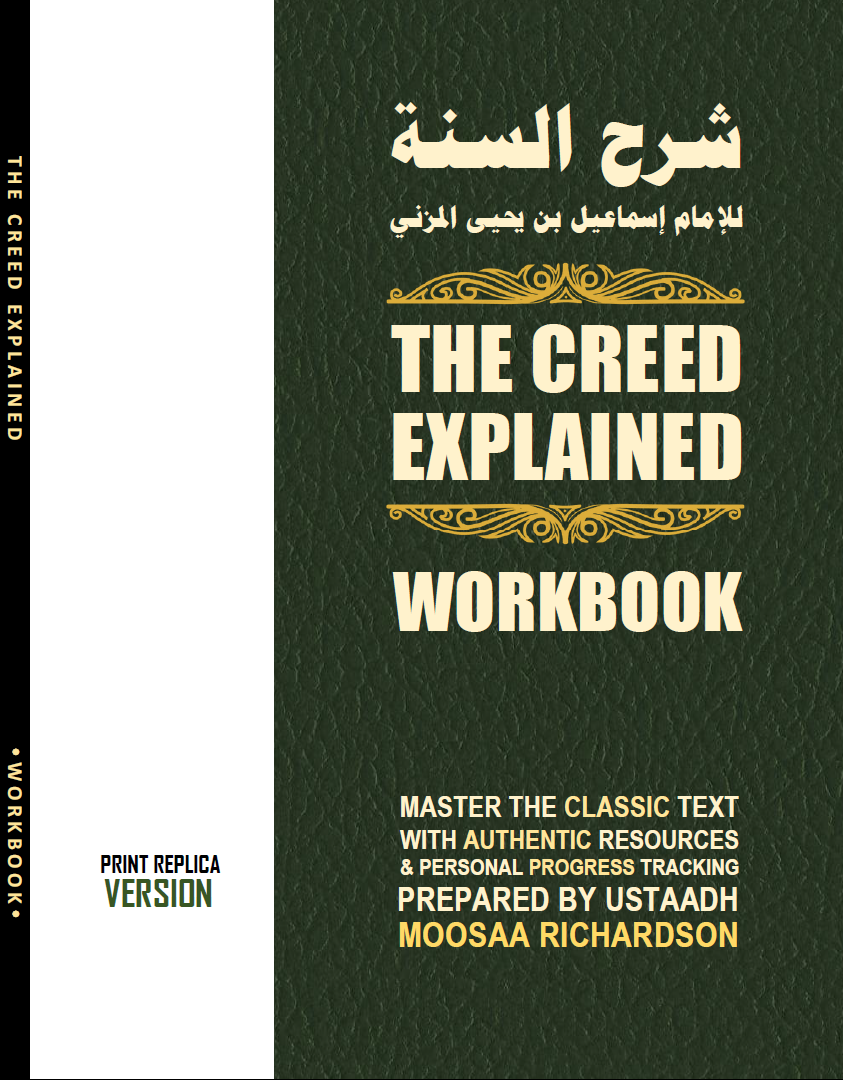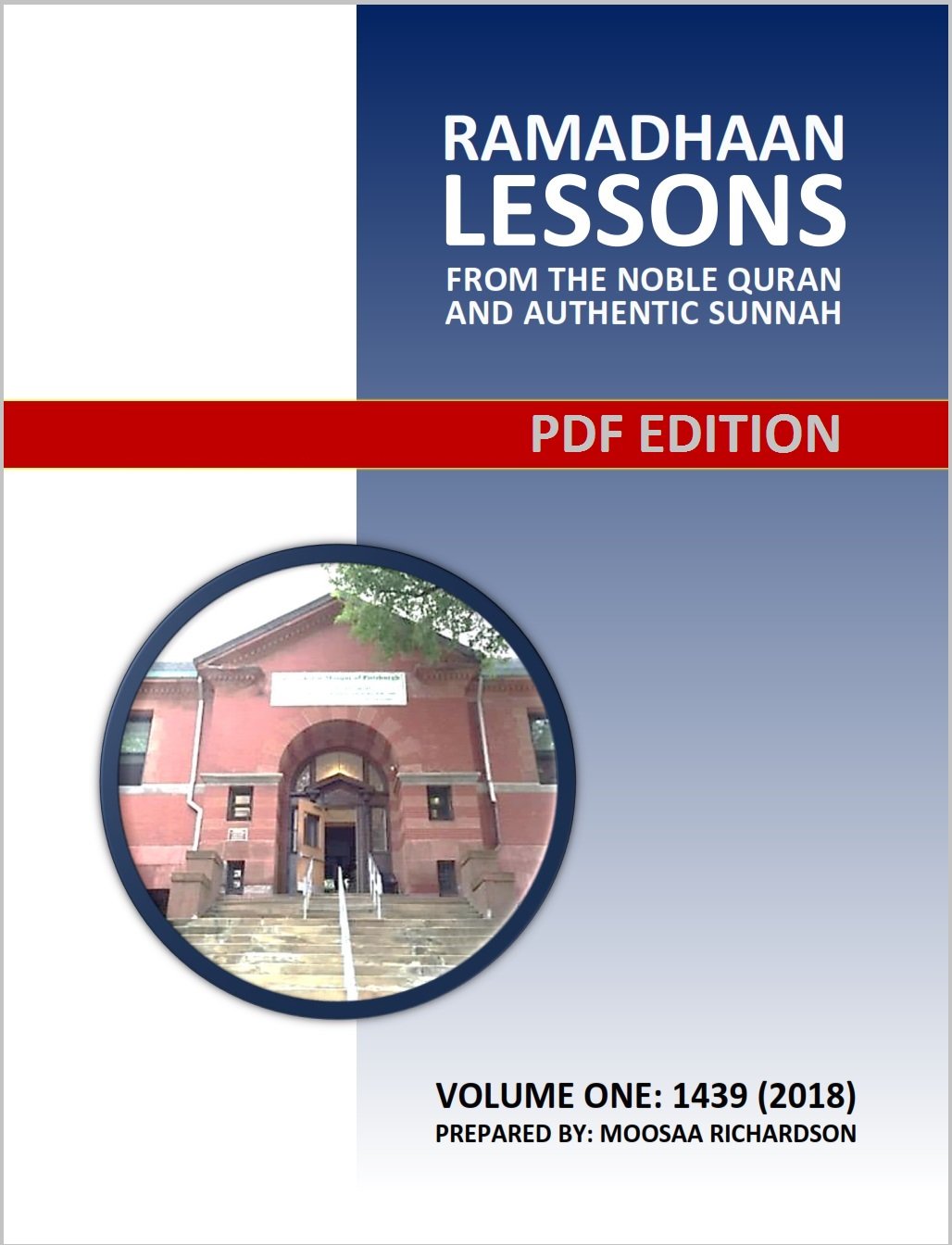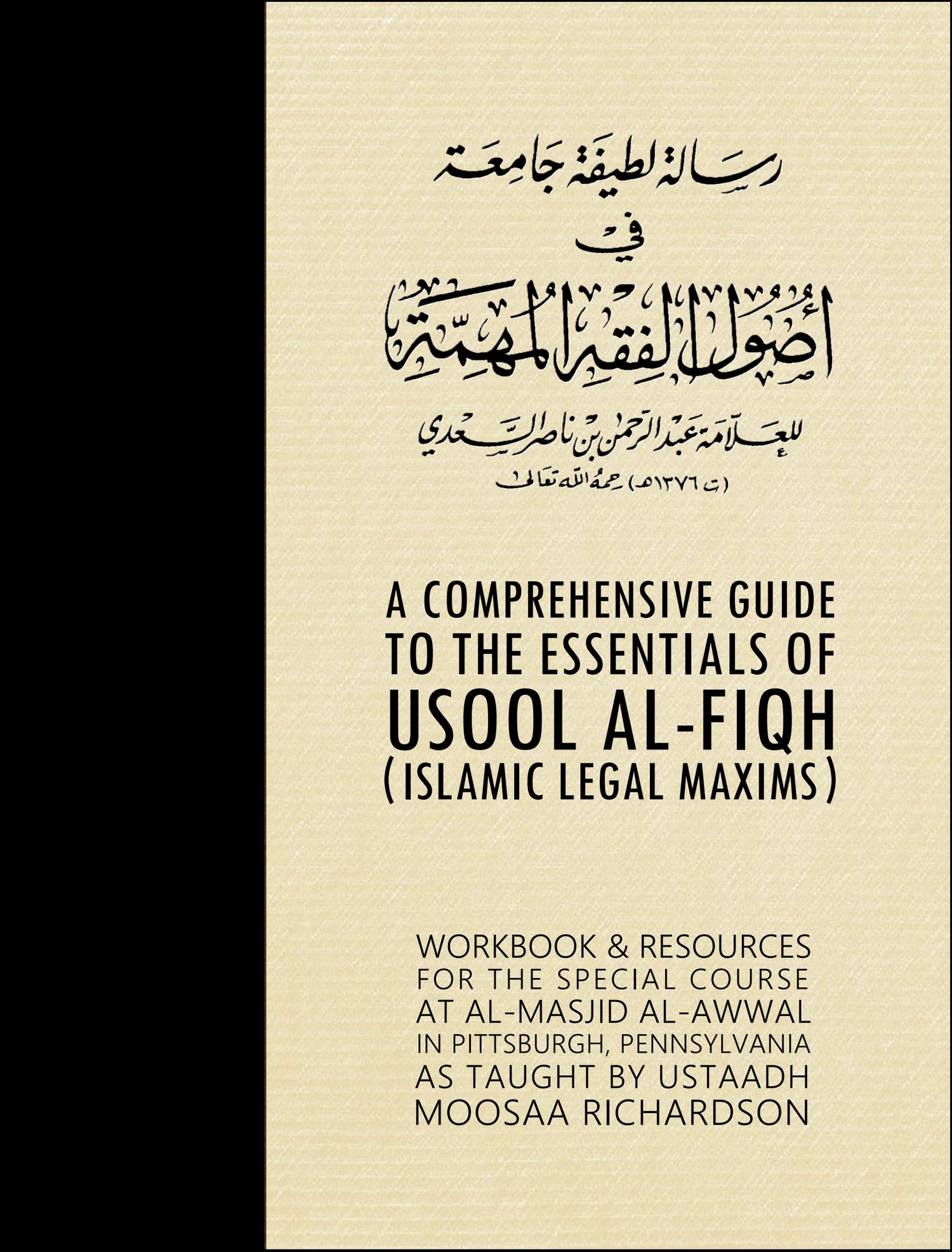
A Comprehensive Guide to the Essentials of Usool al-Fiqh (Islamic Legal Maxims): Workbook
This PDF version of our workbook is NOT for independent self-study; it is your study guide and resources for the classes by Ustaadh Moosaa Richardson (or anyone else teaching this text, Risaalah Lateefah Jaami'ah.
Abul-Muthaffir as-Sam’aanee (d.489, may Allah have Mercy on him) said, “Whoever does not know the foundations of the meanings of Fiqh (i.e. Usool al-Fiqh) shall not be saved from occasions of taqleed (bling following) and being considered among the [unlearned] common folk…”
Shaykh al-Islaam Ibn Taymiyah (d.728, may Allah have Mercy on him) stated: "A person must have usool kulliyyaat (broadly applicable maxims) from which he derives rulings on juz’iyyaat (individual cases), so that he can speak with knowledge and balance, and so he knows about how those individual cases are to be assessed. Otherwise, he would remain in lies and ignorance regarding those individual cases, and in ignorance and oppression regarding the maxims. Such [ignorance] produces a serious level of corruption..."
This book, Risaalah Lateefah Jaami’ah, is an excellent starting point for studying the science of Usool al-Fiqh (Islamic Legal Maxims). Shaykh ‘Abdur-Razzaaq ibn ‘Abdil-Muhsin al-Badr (may Allah preserve him and his father) described it as: “One of the best books one could start with in the field of Usool al-Fiqh.” He went on to explain this in detail, listing a number of special features of this book which make it especially befitting for study:
- Comprehensiveness: It includes the most essential fundamentals of Usool al-Fiqh.
- Conciseness: It is befittingly summarized and not long-winded.
- Simplicity: Its expressions are clear and easy to understand.
- Absence of unnecessary rhetoric, which is found in many books on Usool al-Fiqh.
- Effectiveness: It truly assists a learner in understanding texts of revelation.
- Reliability: It was authored by a masterful scholar, ‘Abdur-Rahmaan ibn Naasir as-Sa’dee.
Some of the topics included:
- IMPORTANT DEFINITIONS: FIQH & USOOL AL-FIQH
- TWO TYPES OF PROOFS: KULIYYAH & JUZ’IYYAH
- FIQH & USOOL AL-FIQH ARE BOTH NEEDED TO DERIVE ISLAMIC RULINGS
- AL-AHKAAM ASH-SHAR’IYYAH: THE FIVE ISLAMIC RULINGS
- TWO KINDS OF OBLIGATIONS: INDIVIDUAL & COMMUNITY
- THE MEANS SHARE THE SAME RULINGS AS THEIR OBJECTIVES
- THE FOUR KINDS OF PROOF IN ISLAMIC JURISPRUDENCE
- THE CORRECT POSITION IS KNOWN BY EVIDENCE
- TEXTUAL EVIDENCE OF THE QURAN: THE UNCREATED SPEECH OF ALLAH
- THE SUNNAH IS STATEMENTS, ACTIONS & APPROVALS
- DIRECT TEXTUAL APPLICATIONS & APPARENT MEANINGS
- MANTOOQ & MAFHOOM: WORDINGS VS. DEDUCTIONS
- APPLICATIONS OF MUTAABAQAH, TADHAMMUN & ILTIZAAM
- PROHIBITIVE INSTRUCTIONS INDICATE IMPERMISSIBILITY
- LITERAL MEANINGS VS. FIGURATIVE SPEECH
- LITERAL MEANINGS DEFINED BY REVELATION
- LITERAL MEANINGS BASED ON THE LANGUAGE
- LITERAL MEANINGS ACCORDING TO CUSTOMS
- GENERAL AND SPECIFIC WORDINGS IN THE TEXTS
- MUTLAQ (UNRESTRICED) & MUQAYYAD (RESTRICTED)
- MUJMAL (AMBIGUOUS) & MUBAYYAN (DETAILED)
- MUHKAM & MUTASHAABIH: CLEAR & UNCLEAR TEXTS
- NASKH (ABROGATION) OF LEGISLATIVE TEXTS
- DIRECTIVES IN THE SUNNAH & SPECIAL CHARACTERISTICS
- WORSHIP IN THE SUNNAH VS. CULTURAL NORMS
- TACIT APPROVAL INDICATES PERMISSIBILITY (AT LEAST)
- IJMAA’ (CONSENSUS) AS A PROOF
- QIYAAS SAHEEH (SOUND ANALOGY) AS A PROOF
- RETURNING TO CERTAINTY WHEN FACING DOUBTS
- THINGS ARE PERMISSIBLE & CLEAN BY DEFAULT
- BURDEN & LIABILITY MUST BE PROVEN
- COMMITMENTS REMAIN UNTIL PROVEN OTHERWISE
- HARDSHIPS FACILITATE CONCESSIONS OF EASE


